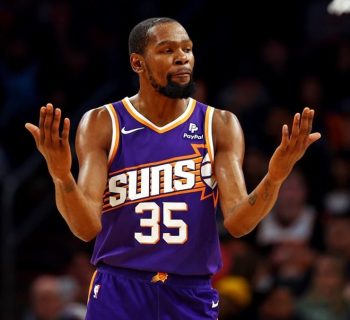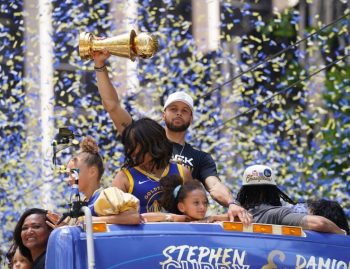Main Page
NBA executives propose granting forfeited draft picks to other teams

NBA executives are discussing the possibility of awarding forfeited draft picks to various competitors, such as top contenders. The goal here is to help struggling young players. Similar to the new draft lottery system, this will open the door to many changes—whether positive or negative for some teams—across the league. Needless to say, it will have an effect on betting as well. Imagine the Los Angeles Lakers or Brooklyn Nets receiving a first-round draft pick from a punished opponent. So, it will impact draft capital and odds down the road.
In 2017, the Lakers were fined $500,000 for tampering with the Indiana Pacers, in efforts to acquire Paul George. At the time, George was playing for the Oklahoma City Thunder but was still under contract with the Pacers. The Lakers were caught communicating with him. While Magic Johnson and Rob Pelinka were not forced to surrender a draft pick, they probably would have had to nowadays. The league is cracking down on rule violations.
Harsher penalties for teams caught tampering
In 2019, NBA Commissioner Adam Silver and the Board of Governors agreed to stiffer penalties for teams caught tampering. They agreed to fines in upwards of $10 million. Not to mention, the forfeiture of future draft picks. Silver said, “Our teams want to know that they’re competing on a level playing field and frankly don’t want to feel disadvantaged if they are adhering to our existing rules.”
Fast forward to December 20, 2020, after violating league rules by having early free agency discussions with Bogdan Bogdanovic, the Milwaukee Bucks were stripped of their second-round draft pick. The Miami Heat and Chicago Bulls are being investigated for the Kyle Lowry and Lonzo Ball sign-and-trades. Furthermore, ESPN’s Jonathan Givony, also the founder of DraftExpress.com, left an interesting comment:
“What executives don’t understand is the NBA’s practice of having teams—like the Milwaukee Bucks in 2022—forfeit late second-round picks as punishment for their deeds. In their minds, late second-round picks have been devalued so much with the advent of the two-way contract that this becomes more of a punishment for young players hoping to hear their names called.
One solution would be to keep the number of players drafted capped at 60 and award these forfeited picks to teams that either won their division or a potential in-season tournament or perhaps to the team for which the NBA’s new Kareem Abdul-Jabbar Social Justice Champion plays.”
NBA is investigating possible tampering violations on the Heat-Raptors trade for Kyle Lowry and Bulls-Pelicans trade for Lonzo Ball, per @wojespn and @ramonashelburne pic.twitter.com/ytwDdO7BjT
— Bleacher Report (@BleacherReport) August 7, 2021
Two years ago, NBA elevated maximum tampering fine to $10M for teams and opened door for suspension of executives, forfeiture of draft picks and voiding of contracts. Team execs can also have their communications – such as phone records, texts and emails – randomly audited.
— Adrian Wojnarowski (@wojespn) August 7, 2021
The NBA Board of Governors continue to change rules
Based on current rules and limitations, the NBA’s front office officials are under the impression that job opportunities are being lost. One executive wondered why players are being penalized via reducing the number of picks made in the NBA draft. This does not make much sense. All the players are being given a fair chance to succeed. Either the player has the talent or he doesn’t; there is no in-between decision here.
While drafted players are not allowed to negotiate contracts with other contending teams, undrafted players are free to discuss a potential signing with any of the 30 teams. Now, some folks would argue that young players take years to develop, and this point is usually true. The earlier young players can practice with NBA veterans, the better.
Moreover, there are scenarios when general managers and coaches would much rather pursue veteran players. This all makes sense. However, if this proposal transitions into a legitimate rule in the future, it could very well complicate things. For several years, the team with the worst record in the league automatically received the first overall pick in the draft months later.
On September 28, 2017, the NBA Board of Governors approved changes to the lottery system. The changes were in effect beginning with the 2019 NBA Draft. From that point onward, the bottom three teams only had a 14 percent chance of winning the top overall pick. This is more about randomness than anything having to do with pure skill or the teams’ final records from the season prior. Though, this new change is all a matter of opinion; no one’s argument is wrong.













